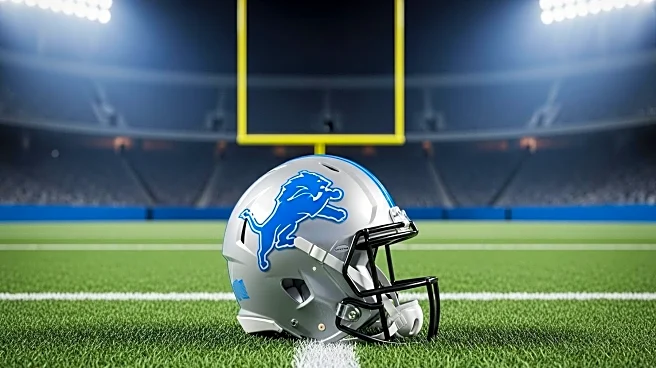What's Happening?
The Detroit Lions attempted a creative trick play during their game against the Kansas City Chiefs, which was ultimately nullified due to an illegal motion penalty. The play involved quarterback Jared Goff lining up under center and then going in motion, leading to a direct snap to running back David Montgomery. Montgomery then threw the ball back to Goff, who caught it and scored a touchdown. However, officials flagged the play because Goff did not pause after going under center before moving in motion, as required by the rules. This oversight led to the penalty, and the Lions had to settle for a field goal instead of a touchdown.
Why It's Important?
The penalty highlights the importance of adhering to NFL rules, even when executing innovative plays. The Lions are known for their creative play-calling, which can be a strategic advantage. However, this incident underscores the need for precision in execution to avoid costly penalties. The Lions' ability to innovate on the field is crucial for their competitive edge, but they must ensure compliance with regulations to capitalize on their creativity. This event serves as a reminder to teams across the league about the importance of understanding and following the rules to avoid negating successful plays.
What's Next?
The Lions will likely review their play-calling strategies to ensure compliance with NFL rules in future games. They may continue to innovate with trick plays but will need to focus on the details to avoid similar penalties. The coaching staff might emphasize rule education and situational awareness during practice sessions. As the season progresses, the Lions will aim to refine their approach to trick plays, balancing creativity with rule adherence to maximize their scoring opportunities.
Beyond the Headlines
This incident may prompt discussions about the complexity of NFL rules and their impact on game strategy. Teams might advocate for clearer guidelines or adjustments to rules that affect innovative play-calling. The Lions' experience could influence other teams to reassess their approach to trick plays, potentially leading to a broader conversation about the role of creativity in football and how it intersects with regulatory frameworks.










